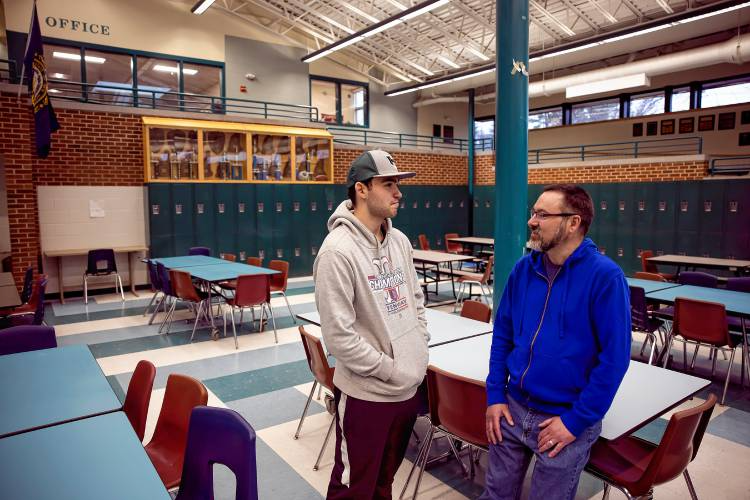By KYLE KITTREDGE
STAFF WRITER
Imagine walking a quarter of a mile each morning to fill one 5.3 gallon jerrycan of water, carrying it back to your hut, and rationing it for drinking, bathing, washing clothes, and cooking meals. This is common practice in rural farming communities in Uganda.
Ian Gagnon wanted to alleviate the pressure of this situation, so he entered a program called LiquiNet into a social innovation competition hosted by UNH.
Gagnon, a mechanical engineering graduate student, and his teammate Melissa Gloekler, a senior environmental engineer, traveled to Lukodi, Uganda this past August with a non-government organization (NGO) known as ChildVoice International (CVI) based out of Newmarket.
They installed a device called the Eden, a remote censored device that measures water being dispensed from a well and relays collected information to an online database via the cellular network so the NGOs will be able to monitor the operations of the well are working.
“That’s why we were there, since it’s kind of been an issue that NGOs put wells in and then they just leave them and forget about them,” Gloekler said.
This leaves the community uneducated about the system, and in some cases angered at outsiders.
So the team initiated a community meeting with the water committees.
“We basically just talked about weighing the concept to them and asked them if this would be something that they’d use, and would be helpful,” Gagnon said, “We told them to be really honest with us, because it would only hurt us if they just said nice things to be nice.”
However, after the meeting Gagnon and Gloekler went to check on the Eden but the system was completely crushed. Water had splashed into the head of the pump, which housed all of the electronics, and weakened the apparatus holding the electronics.
Due to the lack of supply accessibility, the system required some ingenuity and in-field alterations so Gagnon and Gloekler came up with a different way to indicate that the water was flowing through the pump.
They used materials found in Lukodi including: a piece of PVC pipe, three different wires, and Gorilla Glue, to create a new system that worked well.
However, the system that relayed data to the network proved to be an issue. The newer software was not cooperating with the old Ugandan network, since the communication shield was new.
“It was a good balance,” Gloekler said about the team. “Ian’s a mechanical engineer, and he’s good at the fixing mechanical aspects of things, and I kind of brought a different design mindset.”
However, the trip provided insight. LiquiNet gained a better understanding of how their product can meet the greater needs of a developing community, and provide a consistent water source.
“There’s a lot of things I wouldn’t change, because that’s what you learn when you do something for real,” Gagnon said. “Things never come out perfectly the first time, but you shouldn’t just not try and do them because they might not be perfect.”
LiquiNet is still working on the Eden and hoping to move the project over to Engineers Without Boarders as well.



























